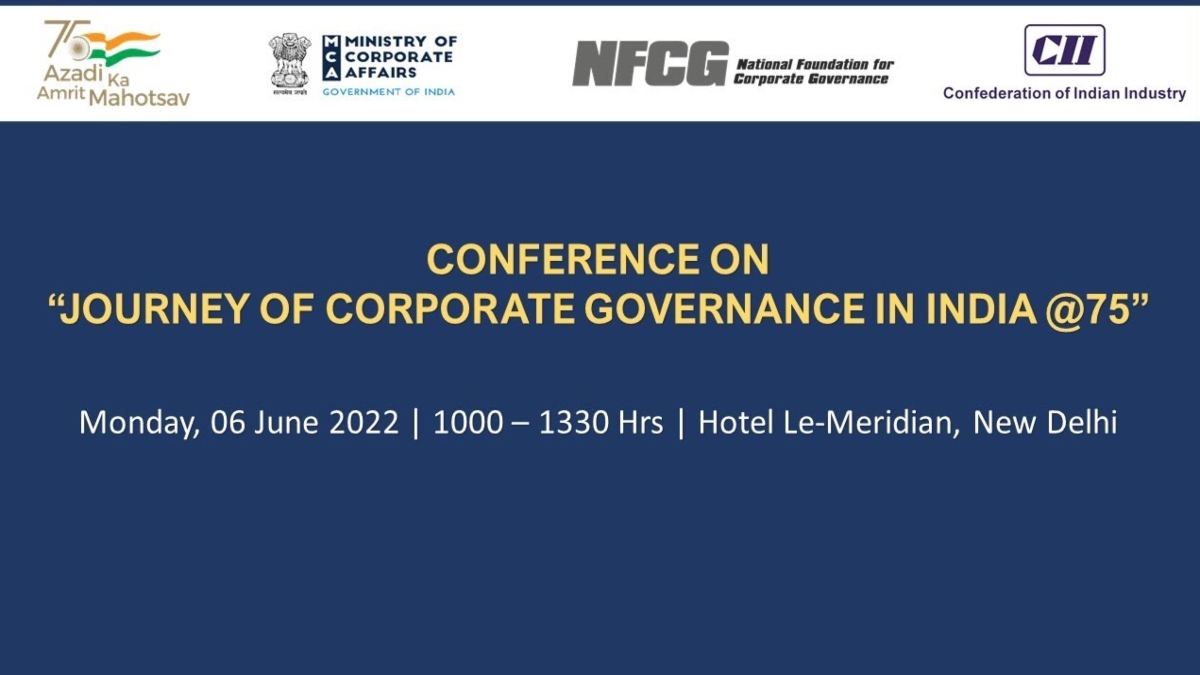


The National Foundation for Corporate Governance (NFCG), under the aegis of MCA, in partnership with the Confederation of Indian Industry (CII), hosted a program themed on “Journey of Corporate Governance in India@75” in the “Azadi Ka Amrit Mahotsav (AKAM)” to celebrate 75 years of India’s independence.
Speaking at the conference on the topic “Corporate Governance in Family Business: Fulfilling Family Legacy Through Boards”, Farhad Forbes, Co-Chairman, Forbes Marshall, spoke about the importance of building trust and communication with stakeholders, transcending values, and having open conversations on issues revolving family business eg.Shareholding, transition in ownership, management, succession, etc.
Emphasizing the need to have independent directors on the board, he stated that keeping only family members on the boards, limits the horizons of the business. He also spoke about inculcating leadership through experience outside the family business and linkage of passion for business and legacy, which all are imperatives to good governance.
While underlining the importance of passion in running family businesses, Kartik Bharat Ram, Joint Managing Director, SRF Ltd., deliberated upon working on issues in family business such as constitution, dividend distribution, funding, transparency, and governance, how to curb distrust and suspicion. He underlined the need for role modelling of values such as integrity, respect for others, and transparency by the promoters and top management. He also stressed the importance of independent directors on the board so that concerns about the family businesses are highlighted. IT-enabled services and self-certification are imperatives for ensuring compliance and governance in family businesses, Bharat Ram added.
Addressing the session on “Self–Reliant MSME: Imperative for The Indian Economy”, with a focus on the importance of the MSME segment in the Indian economy, the Importance of corporate governance and risk management, and the Challenges faced in implementing robust governance and compliance mechanism, Shreekant Somany, Chairman & Managing Director, Somany Ceramics Limited said that Product Quality and Corporate Governance are key for transforming MSME into large businesses of the future. He also shared views on key issues surrounding, how good Corporate Governance benefits the MSME sector, especially helping in making the business scalable, and sustainable and attracting Investors by meeting investors’ expectations from a corporate governance perspective.
The discussion also focussed on key issues surrounding the need for a supervisory Board, the role of independent directors, the Right organization structure, availability and qualification of people especially for the finance function, and segregation of duty and control. Session also emphasised key policy aspects related to delegation of authority, whistle-blowing and anti-fraud program, internal audit function, enterprise risk management, IT infrastructure, financial reporting controls, and Compliance framework.
The MSME Session was chaired by Shreekant Somany, Chairman & Managing Director, Somany Ceramics Limited. The session was moderated by Puneet Gupta, Managing Director, Protiviti and other speakers included Ashok Saigal, Managing Director, Frontier Technologies, Dr. K Nandakumar, Managing Director, Chemtrols Industries, K K M Kutty, Managing Director, Sealings and Jointings and Rajat Mehra, Partner, Rajat Chemical Industry.
The last session on the topic “Start-ups and Corporate Governance” witnessed deliberations on the importance of value creation, transparent corporate governance practices, the role of nomination and remuneration committee, right disclosures at the right time, the need to understand the financial statements and maintain transparency in transactions so as not to fall in the ambit of related party transactions or conflict of interest.
It was further discussed that lapses in corporate governance may lead to drastic consequences for the company. The speakers observed how blockchain technology can help lay down compliance systems and processes and the role that artificial intelligence can play in achieving corporate governance norms. The panel highlighted the need for board diversity and independent directors on board to manage multiple facets of the business. It was deliberated that the value system, code of conduct, broad understanding of ethics, and whistle-blower policy of the company are imperatives as they reflect on the corporate governance of the organization. Besides, due diligence, tracking the right metrics, spending time on revenue recognition, transactions on an arms’ length basis, regular communication with stakeholders, and good board meeting processes were recognized as part of sound corporate governor.